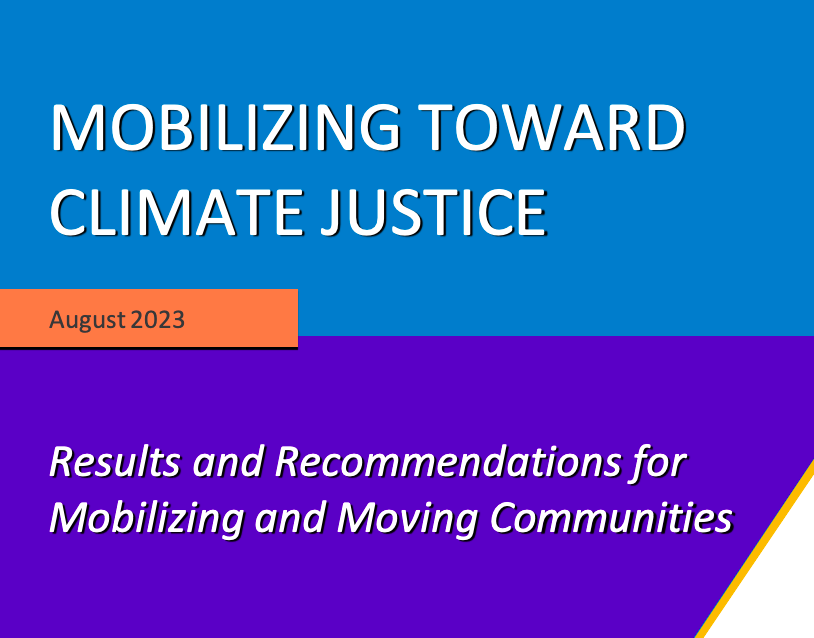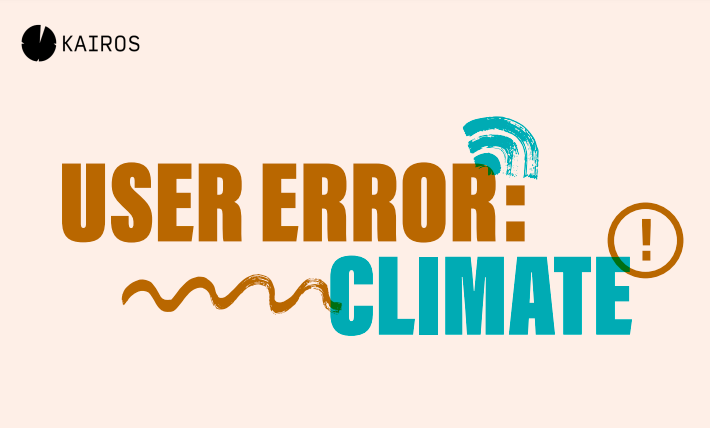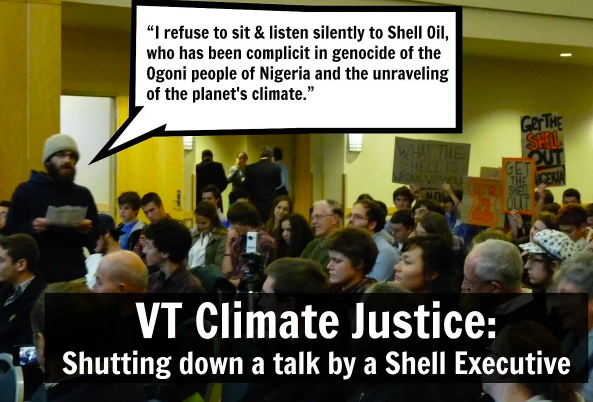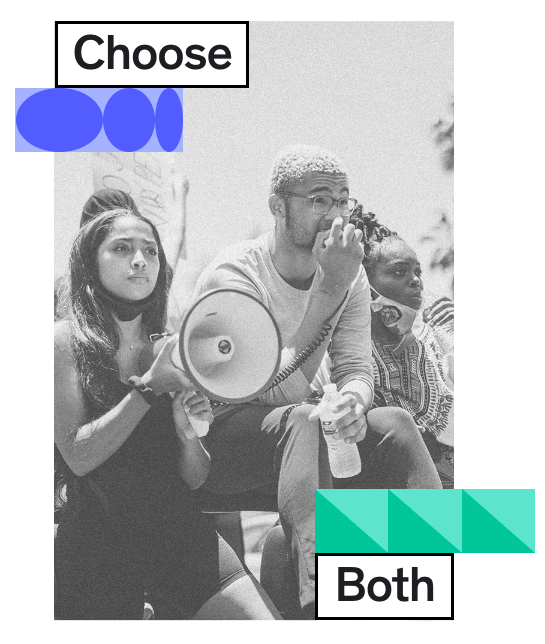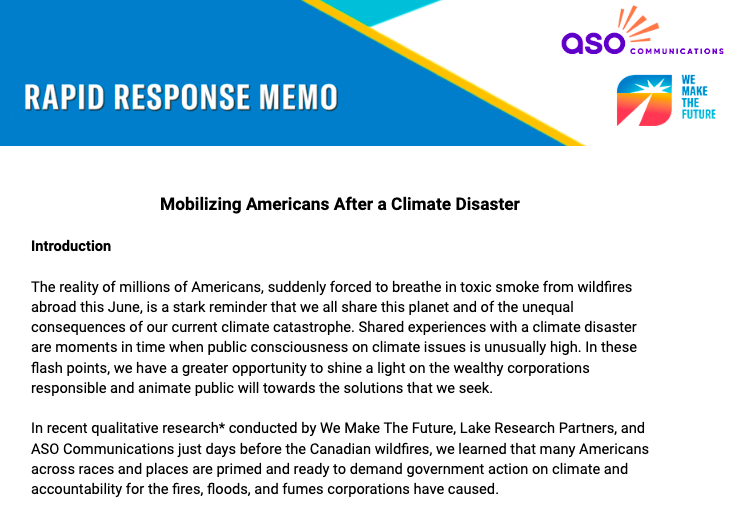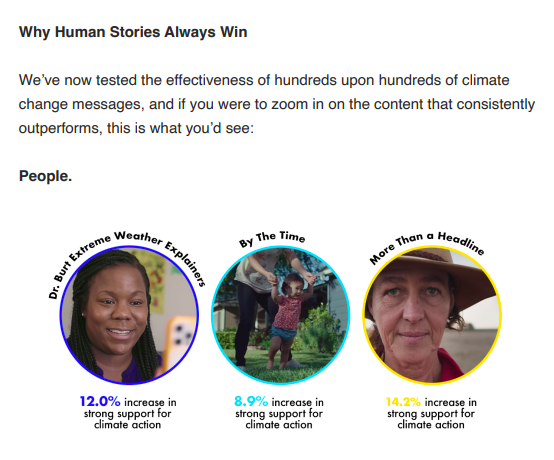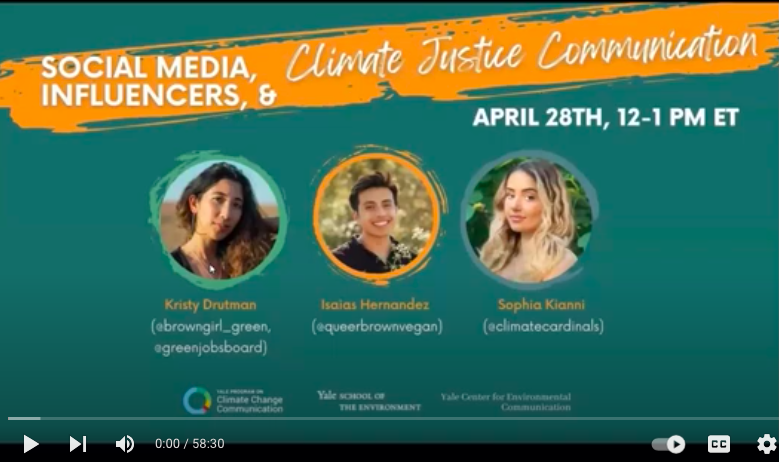Resources
Search below for resources covering the intersection of climate engagement, social science and data analytics.
RESULTS
Mobilizing Toward Climate Justice
Mobilize community members as a choir in support of robust climate interventions that center people of color and exert pressure on elected leaders, government agencies, and corporations to put renewable and regenerative power in the hands of impacted communities. The following messaging guidance is helpful. Frame the issues and impacts of the climate crisis in terms of lived experience and creation of good as opposed to removal of something bad or abstract ideas. Use active voice – name culprits and provide origin story for the climate crisis. Lead with the experience and solutions that communities of color bring to addressing climate change rather than the harms that disproportionately impact them. Focus on how public utilities can lower costs, provide more reliable energy, and empower the community. Call out corporations and their greed. Don’t use comparison to existing public goods. Share positive stories of publicly owned utilities. Avoid naming disparities without assigning blame. Effective culprits here are corporate CEOs, fossil fuel corporations, wealthy few who profit off polluting our communities. Link action to past victories and power of collective action (i.e. “the many can defeat the money”). Give examples of what solutions that prioritize communities of color look like. Combine calls to action, such as holding fossil fuel corporations accountable, with a vision for the better future we will create. Give people political actions to take or they will default just to direct aid. Make it clear who is at fault for the disasters that we face.
User Error: Climate
This report explores Big Tech’s actions that feed the climate crisis. Big Tech’s actions include: allowing disinformation to flourish online; providing cloud services to help oil and gas companies pump more fossil fuels; participating in trade organizations that lobby against policies that would help the US shrink emissions; producing ever-growing emissions of their own; and funding and promoting false solutions. This report ends with demands for Big Tech to stop these actions that fund the worsening of the climate crisis. To fight the climate crisis, Google, Meta, Microsoft, Apple, and Amazon need to: support policies that help the U.S. end its reliance on fossil fuels; withdraw from trade groups that lobby against climate mitigation; support climate mitigation efforts that have grassroots support, like shrinking fossil fuel and other polluting industries to cut greenhouse gas emissions at their source; stop providing cloud services to oil and gas companies; eliminate climate disinformation on your platforms; and create and follow measurable plans to get to carbon-zero, not ones based on speculative tech and wishful thinking.
Actions > Awareness
Actions are our best tools for generating awareness—and not the other way around. There’s some fascinating evidence that makes the case for why actions are our best tools for generating awareness that comes from the pro-life movement. This resource is Chapter 29 from a book project called "Rough Waters Ahead: Holding on for Young & Rising Climate Change Activists." Sociologist Ziad Munson studied how anti-abortion activists first got involved, and Munson found that 23% of anti-abortion activists were pro-choice and 20% were undecided on abortion access when they attended their first event. What led these moderate of liberal-leaning people to join the pro-life movement? Munson argued that it was relationships and feeling part of a bigger whole that helped people gel into their anti-abortion beliefs. Munson also found that people who evolved into an anti-abortion activist were more likely to be at a significant turning point in their life, such as recently graduating high school or college, moving to a new city, starting a new family, or newly retiring. PowerLabs movement support group has also similarly found that direct, political actions change people’s minds and create new awareness—not the other way around.
Choose Both
Choose Both is a collection of movement builders, supporters, and mobilizers helping partners realize a more open, just, and habitable world. They believe that pursuing equity for marginalized folks is the only way to get there. They work with storytellers, campaigners, designers, and more transforming the way that organizations and initiatives take on racial equity as an impact priority. Choose Both identified 5 key decision-points where these partners can choose both equity and evidence to strengthen their impact. First, choose goals that both capture new visions and meet existing needs. Second, choose storytelling that’s both emotional and technical. Third, choose to reach both loyal audiences and new communities. Fourth, choose to both consider data and challenge bias. Fifth, choose reporting that both inspires your own community and accounts for others.
Mobilizing Americans After a Climate Disaster
Campaigners, communicators, and community leaders can use the following guidance to mobilize and move our base and persuadable audiences to call out for action and leadership that will protect our climate, our families and our futures. To make effective calls for action, people need a clear sense that we cannot merely survive but we can actually confront our problems in order to live better lives. Combine calls to action, such as holding fossil fuel corporations accountable in the aftermath of these events, with a vision for the better future we will create. It’s critical that we make it clear who is at fault for the disasters that we are facing – the wealthy corporations, Big Oil, fossil fuel CEOs and the politicians they pay for who want to keep hoarding our wealth, blocking the policies we want and need, and refusing to pay for the damage they’ve done to our lives and the places we call home. For overall best messaging practices, lead with values, naming that they’re shared across races, classes and backgrounds. Name the culprits behind this crisis and ascribe motivations behind their actions to perpetuate harm and block solutions. Combat cynicism by highlighting past and recent victories we’ve achieved by coming together. And make clear our desired destination by connecting action in the present with our vision for the future.
Can Americans Talk About Their History Without False Antagonism?
Americans think they disagree about their national history more than they actually do. Republicans think Democrats want to teach a history exclusively defined by shameful oppression and guilt, while Democrats believe Republicans want to overlook grave injustices like slavery and racism—yet both impressions are incorrect. For example, the proportion of Republicans who agree that “Martin Luther King and Rosa Parks should be taught as examples of Americans who fought for equality” is more than two times more than Democrats think (93% versus 35%). In another example, about twice as many Democrats believe “students should not be made to feel guilty or personally responsible for the errors of prior generations” than Republicans think (83% versus 43%). How can we close that perception gap? First, correcting misperceptions can reduce perception gaps. Second, we can all personally do our best to reduce our own perception gaps. Third, enter into dialogue with someone with a different political viewpoint. Fourth, help build an alternative social network ecosystem of people with a variety of viewpoints.
Why Human Stories Always Win
Messages that consistently outperform other content center people and their stories. Again and again, whether the topic was jobs, extreme weather, or the scientific facts of overheating, one finding seemed to stand head and shoulders above the rest: Advertisements with human faces win. A natural, casual conversation between two moms—one a climate scientist, and one an everyday American who had some questions about how (and why) wildfires were getting worse—increased strong support for immediate climate action by 12.0%, compared to a provocative ad that highlighted the constant “state of emergency” we often find ourselves in due to extreme weather, which increased strong support by 3.4%. Another recent campaign specific to California showcased the individual humans most affected by the headlines many have become immune to: A headline about a drought is easy to ignore, but the face of a farmer is hard to forget—this campaign led to a 14.2% increase in strong support for climate action. Overall, find the humans, humanize the headlines, connect on shared values, and lift up unexpected messengers.
Social Media, Influencers, and Climate Justice Communication
Leading eco-influencers are harnessing online platforms for education and social change around environmental, climate, and justice issues. Kristy Drutman of Browngirl Green and Green Jobs Board is working to improve the anti-racist practices of environmental organizations and publicly speaks on climate justice. Isaias Hernandez of QueerBrownVegan creates online educational climate content and collaborates with writers, communicators and researchers. Sophia Kianni of Climate Cardinals is working to make the climate movement more accessible by translating and sourcing crucial climate resources into more than 100 languages.
Pushing for Energy Justice with Fairbanks Climate Action Coalition: Community Organizing Lessons from Alaska
The Fairbanks Climate Action Coalition (FCAC) is working to advance a Just Transition away from fossil fuel extraction and towards renewable energy and a regenerative economy in interior Alaska. For several years, FCAC’s Renewable Energy Working Group has been organizing around their local electric utility cooperative, Golden Valley Electric Association (GVEA), to support more generation from renewable energy sources and energy justice initiatives and decarbonization of electricity. FCAC’s organizing efforts have supported more pro-renewable candidates to be democratically elected to the GVEA’s Board of Directors and pushed the utility to consider community solar projects and on-bill financing. A major win came in June 2022 when the GVEA Board adopted a strategic generation plan including a commitment to close down one of their coal plants and pursue a large scale wind power project.
In this webinar, FCAC shares learnings from their Microgrant Report: Cooperative Opportunity: Clean Energy documenting the development of their campaign, sharing reflections on how their organizing structure led to wins, the challenges they faced, and the lessons that can be learned to succeed in future campaigns.
Exploring narrative practices for broad-based movements in contexts of democratic decline
There are key ways for movement groups to use narrative strategies to build stronger coalitions. Many narrative practitioners and funders are using creative means to build narrative infrastructure and power, especially for those whose voices have been traditionally marginalized or “othered.” Yet, we continue to experience fragmentation and toxic othering within many of our movement ecologies where civic space is closing. Here are three areas of narrative practice that support collaboration between groups coming together with the aim of reducing systems of authoritarianism and strengthening democratic values: 1) Legitimacy—how narratives regulate and determine the nature of interactions between people, 2) Power—the dynamics of relations and decision-making in the narrative landscape, 3) Complexity—the capacity of any narrative to evolve and change. The Narrative Engagement Across Difference Project (NEAD) was designed by a consortium of organizers, academics, and philanthropists to take a deep look at narrative practices from a multidisciplinary lens and to reflect on how we can better unlock more effective collective action within diverse, broad-based movements.
Pagination
- Previous page
- Page 3
- Next page
